The conference focuses on providing the latest developments and implications in the assessment and regulation of genotoxic compounds and is designed to meet the diverse needs of various industries. It will cover a wide range of topics including test methods, guidelines, and the modelling and prediction of genotoxicity.
This compact conference on genotoxic compounds offers a unique platform for interaction among regulatory, industrial, and scientific professionals and focuses on agrochemicals, chemicals, biocides, cosmetics, pharmaceuticals, food, feed, and food contact materials. Attendees can expect to gain valuable insights into the latest advancements in regulation, quantitative risk assessment, test methods and guidelines, to understand the implications for their specific industries, and to learn about modelling and prediction. This event promises to be a crucial opportunity to stay informed and updated in this rapidly evolving field.
Regulatory developments
Quantitative risk assessment
Development of test methods and guidelines
Modelling and prediction of genotoxicity
Professionals working in the fields of:
Sectors that should take part:
Picture Credit: © Sashkin – Fotolia.com
Timings are in Central European Time CET.
Krista Meurer, BASF, Germany
Carsten Kneuer, German Federal Institute for Risk Assessment (BfR), Germany
Frans Verstraete, European Commission, Belgium
Catherine Mahony, Procter & Gamble, UK
Stefan Pfuhler, Procter & Gamble, USA
Ulrike Gündel, German Federal Institute for Risk Assessment (BfR), Germany
Raffaella Corvi, European Commission Joint Research Centre (JRC), Italy
Benjamin Sachse, German Federal Institute for Risk Assessment (BfR), Germany
Paul A. White, Health Canada, Canada
Francesco Marchetti, Health Canada, Canada
Carole Yauk, University of Ottawa, Canada
Timings are in Central European Time CET.
Giel Hendriks, Toxys, The Netherlands
Birgit Mertens, Sciensano, Belgium
Maricel Marin-Kuan, Nestlé Research, Switzerland
Juan Parra Morte, European Food Safety Authority (EFSA), Italy
Olga Tcheremenskaia, Istituto Superiore di Sanità (ISS), Italy
Markus Frericks, BASF, Germany
Name
Unternehmen
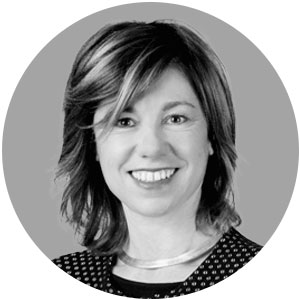
Raffaela Corvi
European Commission Joint Research Centre (JRC), Italy
Raffaella Corvi has a PhD in Biological Sciences and has been working at the Joint Research Centre of the European Commission since 2001 where she established the activities in the area of genotoxicity and carcinogenicity. In 2003 she was seconded to the OECD Test Guideline Programme in Paris. Currently, she conducts activities that evaluate innovative and integrated approaches to assess chemical safety across sectors and support their regulatory implementation, while also promoting the 3Rs across multiple regulatory sectors. She is currently leading a working group for the revision of germ cell mutagenicity classification criteria at the UN Globally Harmonized System of Classification and Labelling of Chemicals (GHS) and is a member of several European and international committees (e.g. co-chair of the European Partnership for Alternative Approaches to Animal testing (EPAA) project platform, OECD expert groups, HESI Genetic Toxicology Technical Committee, etc.).
mehrweniger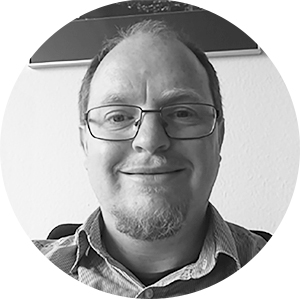
Markus Frericks
BASF, Germany
Markus Frericks is a Biologist and European Registered Toxicologist, working as a Regulatory Toxicologist at BASF in Limburgerhof. He is the Vice Chair of the Working Group on Computational Toxicology of the German Society of Toxicology (GT) and the Chair of the CropLife Europe Working Group on Genotoxicity-QSAR.
mehrweniger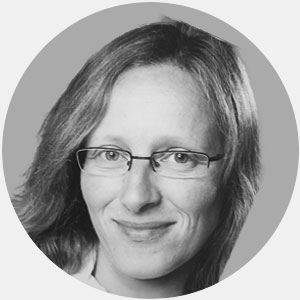
Ulrike Gündel
German Federal Institute for Risk Assessment (BfR), Germany
Ulrike Gündel studied Biochemistry and Toxicology. She has been working as a Scientist in the Safety of Chemicals Unit of the Department of Chemicals and Product Safety at the German Federal Institute for Risk Assesssment (BfR) in Berlin since 2015 and has focussed on the endpoint mutagenicity. She is involved in several national and international expert groups related to mutagenicity such as OECD expert groups and the current UN GHS informal working group for discussion of the classification criteria of germ cell mutagenicity. Moreover, she acts as ECHA Member State Committee (MSC) and Risk Assessment Committee (RAC) adviser for mutagenicity related issues.
mehrweniger
Giel Hendriks
Toxys, The Netherlands
Giel Hendriks has a PhD in molecular cell biology from Utrecht University and worked for four years as a post-doctoral fellow at Leiden University, studying the relationship between DNA damage and gene mutations. After this he moved to the Leiden University Medical Center to develop in vitro reporter systems to understand the mechanisms of genotoxicity. Currently, he is the CEO of Toxys, a contract research organisation (CRO) he started in 2014. During the past years, Toxys has developed various in vitro assays to ensure the safety of novel medicines, chemicals and consumer products without the use of animals.
mehrweniger
Carsten Kneuer
German Federal Institute for Risk Assessment (BfR), Germany
Carsten Kneuer is a Toxicologist and the Head of the Unit “Toxicology of Active Substances and their Metabolites“ in the Pesticides Safety Department of the German Federal Institute for Risk Assessment. His group is evaluating the mammalian toxicology of pesticides within the EU assessment framework and actively involved in various projects aimed at the advancement of our risk assessment practice.
mehrwenigerCatherine Mahony
Procter & Gamble, UK
Catherine Mahony is a Principal Scientist for Procter & Gamble Technical Centres, UK with more than 24 years of Product Safety experience in the consumer product industry. Within that role, she is responsible for providing scientific leadership for assessments aimed at characterising the safety of ingredients and new products. She is the author or co-author on a number of publications and is a member of both the UK register of Toxicologists and the European Register of Toxicologists. She is also a member of the British Toxicology Society.
mehrweniger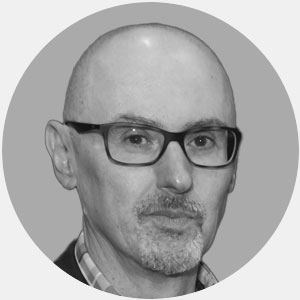
Francesco Marchetti
Health Canada, Canada
Francesco Marchetti is a Senior Research Scientist at Health Canada and Adjunct Research Professor at Carleton University. He chairs the Germ Cell workgroup of the Health and Environmental Science Institute’s Genetic Toxicology Technical Committee and the International Workshop on Genotoxicity Testing’s Workgroup on error corrected sequencing. He is a member of the Organisation for the Economic Co-Operation and Development Expert Group on Genotoxicity Testing and serves on the editorial boards of Environmental and Molecular Mutagenesis and Mutagenesis. Francesco was President of the Environmental Mutagenesis and Genomic Society (EMGS) in 2022 and received the Excellence in Science Award from the Genetic Toxicology Association in 2024.
mehrweniger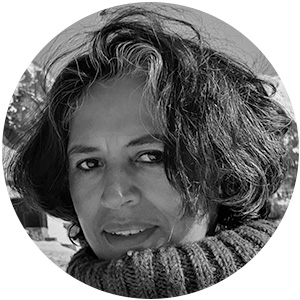
Maricel Marin-Kuan
Nestlé Research, Switzerland
Maricel Marin-Kuan is In Vitro Toxicology Specialist within the Nestlé Institute of Food Safety & Analytical Sciences at Nestlé Research in Lausanne-Switzerland. Maricel has been working at Nestlé since 2002, with key scientific contributions in the safety-by-design area bringing in vitro solutions to food quality and safety challenges for prioritization and decision-making. Involved in the packaging safety area since 2010 with the application of multidisciplinary tools to assess the safety of new packaging material using qualified in vitro tools. External collaborations with academia and industry on various food safety issues.
mehrweniger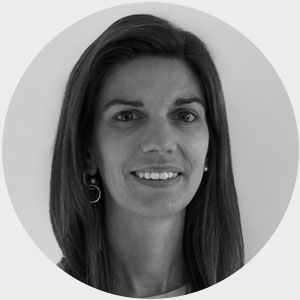
Birgit Mertens
Sciensano, Belgium
Birgit Mertens obtained her Master in Pharmaceutical Sciences and PhD in Neuropharmacology from the Vrije Universiteit Brussel in Belgium. She joined Sciensano in 2010 and is currently a Senior Toxicologist and team leader of the Risk and Health Impact Assessment Service. She coordinates and participates in multiple (inter)national research projects and activities on the genotoxicity of physical and chemical agents, focusing on food contaminants and developing and applying new approach methodologies. She is the National Coordinator of the Test Methods Programme both at the European and OECD level and the Belgian contact point for the Preliminary Assessment of the Regulatory Relevance of Alternative Methods (PARERE) network. She is also a member of the OECD genotoxicity expert group. She participates in different (inter)national working groups and scientific committees on hazard and risk assessment and is the current president of the Belgian Environmental Mutagenesis Society.
mehrweniger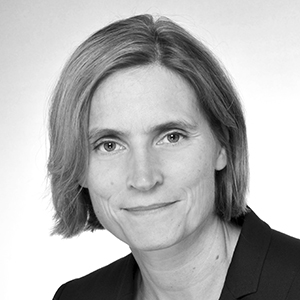
Krista Meurer
BASF, Germany
Krista Meurer has been a Regulatory Toxicologist for Crop Protection at BASF since 2008. In support of European and global registrations, she is responsible for human health risk assessment for pesticide products and active substances. Based on 10 years experience as a Study Director in contract research, Krista has a special interest in genetic toxicology testing and is a co-chair of the CropLife Europe genotoxicity expert group as well as member of the Health and Environmental Sciences Institute (HESI) Genetic Technical Committee (GTTC).
mehrweniger
Juan Parra Morte
European Food Safety Authority (EFSA), Italy
Juan Parra Morte has been Toxicologist in the Pesticide Peer Review Unit of EFSA since 2008. He has been actively involved in the assessment of pesticide active substances, their metabolites and impurities, including the EFSA PPR, the OECD Guidance on Residue Definition and EFSA's outsourced projects on the Genotoxicity Database and QSAR and Read-Across for the genotoxicity of metabolites. He has also been involved in supporting the EFSA Working Group on Genotoxicity, being a co-author of the EFSA Scientific Committee Guidance and Statements regarding genotoxicity since 2017.
mehrweniger
Stefan Pfuhler
Procter & Gamble, USA
Stefan Pfuhler is employed by Procter & Gamble, USA, and serves as their Global Genotoxicity Expert with 25 years of Product Safety experience in the consumer goods industry. Within that role, he manages genotoxicity issues for P&G products and ingredients, develops and supports testing strategies and policies across the company, leads the P&G Genotoxicity Expert Team and research program, targeting improved in vitro assays and avoidance of animal testing.
mehrweniger
Benjamin Sachse
German Federal Institute for Risk Assessment (BfR), Germany
Benjamin Sachse is a European Registered Toxicologist and has been working as a Scientific Officer in the Food Safety Department at the German Federal Institute for Risk Assessment (BfR) since 2016. He is responsible for the risk assessment of botanical ingredients in foods and has a background in genotoxicity assessment for several years.
mehrweniger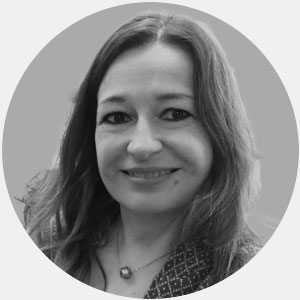
Olga Tcheremenskaia
Istituto Superiore di Sanità (ISS), Italy
Olga Tcheremenskaia is a Senior Researcher at Environment and Health Department of the Italian National Institute of Health (ISS) and has worked at this Institute since 2001. She has coordinated several projects funded by EFSA and ECHA, as well as co-coordinating the OECD (Q)SAR Assessment Framework working group. Her current activities include serving as the Italian representative in several OECD expert groups, including the OECD IATA case studies project, the OECD QSAR Toolbox Management Group, and the OECD Emerging Science in Chemicals Assessment (ESCA) expert group. She participates actively in the EU_PARC project and coordinates the Task on improving existing computational methodologies within the EU_WILDPOSH project and the EFSA project on updating the EFSA genotoxicity database. A major part of her research focuses on chemical risk assessment using animal-free methods, particularly New Approach Methodologies (NAM) based on in silico approaches such as (Q)SAR models, read-across, and AOPs. She also has extensive experience managing toxicological data and developing relational databases.
mehrweniger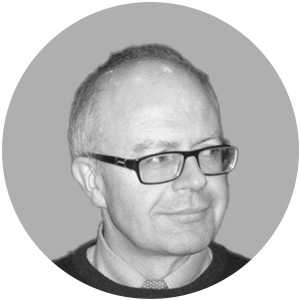
Frans Verstraete
European Commission, Belgium
Frans Verstraete works in the European Commission in the Directorate General for Health and Food Safety (DG SANTE) and is responsible for legislation on contaminants.
mehrweniger
Paul A. White
Health Canada, Canada
Paul A. White obtained his BSc in microbiology and immunology, and PhD in environmental toxicology, from McGill University in Montreal. He conducted post-doctoral research at US EPA facilities in Rhode Island and North Carolina; investigating the mutagenic hazards of municipal wastewaters. He joined Health Canada in 1999 and is currently a senior research scientist in the Environmental Health Science and Research Bureau. In 2002 he was appointed Professor of Chemical and Environmental Toxicology in the Department of Biology at the University of Ottawa. His current work investigates the mutagenic and carcinogenic hazards of complex mixtures, the design and validation of in vitro tools for genetic toxicity assessment, the use of molecular biomarkers for mutagen exposure assessment, and the application of quantitative methods for interpretation of genetic toxicity dose-response data. He has published over 125 peer-reviewed papers, and his work has been cited over 6700 times. He currently serves on the editorial boards of Environmental and Molecular Mutagenesis, Mutation Research Reviews, Genes and Environment, and Food and Chemical Toxicology, and he is currently the vice-president of the International Association of Environmental Mutagenesis and Genomics Societies (IAEMGS).
mehrweniger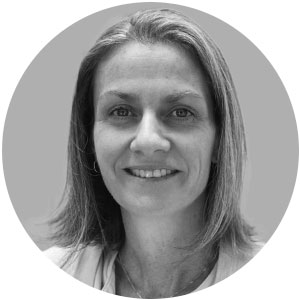
Carole Yauk
University of Ottawa, Canada
Carole Yauk was the lead scientist of the Genomics Laboratory in the Environmental Health Science and Research Bureau at Health Canada for 18 years. She joined the University of Ottawa’s Department of Biology as a professor in September 2020, where she holds the Tier 1 Canada Research Chair in Genomics and the Environment. Her research broadly focuses on multi-sector collaborative efforts to develop and implement genomic tools for human health risk assessment of environmental chemical exposures. She is involved in various international consortia to advance this area, including within the Health and Environmental Sciences Institute (a global non-profit), where she currently serves as Chair of the Board of Trustees. She is a Canadian Delegate to the Organisation for Economic Co-operation and Development (OECD), participating in the Advisory Group on Emerging Science in Chemicals Assessment. She is Past-President of the Environmental Mutagenesis and Genomics Society and an editorial board member of several journals focused on mutagenesis and genetic toxicology.
mehrwenigerTeilnahmepreis: € 995,00 zzgl. MwSt.
Im Teilnahmepreis sind folgende Leistungen enthalten:
Vertreter:innen einer Behörde oder einer öffentlichen Hochschule erhalten einen ermäßigten Teilnahmepreis von € 495,00 zzgl. MwSt. (Nachweis per Fax oder E-Mail erforderlich). Der Sonderpreis ist nicht mit anderen Rabatten kombinierbar.
Gruppenrabatt
Bei gemeinsamer Anmeldung aus einem Unternehmen erhalten die dritte und jede weitere Person 15 % Rabatt.
Buchen ohne Risiko
Die Teilnahme an unseren Online-Veranstaltungen können Sie bis zu 1 Woche vor Veranstaltungsbeginn kostenfrei und ohne Angabe von Gründen schriftlich stornieren. Bei späteren Stornierungen sowie bei Nicht-Login zur Online-Veranstaltung können keine Teilnahmegebühren erstattet werden.
Sie erhalten jedoch in diesem Fall von uns nach der Veranstaltung Zugang zu den Dokumentationsunterlagen.
Eine Ersatzperson können Sie jederzeit kostenfrei benennen.
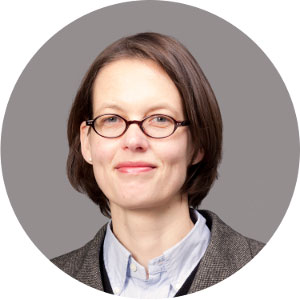
Sabine Mummenbrauer
Inhalt und Konzeption
+49 231 75896-82
smummenbrauer@akademie-fresenius.de

Sabine Mummenbrauer
Inhalt und Konzeption
+49 231 75896-82
smummenbrauer@akademie-fresenius.de

Sabine Mummenbrauer
Inhalt und Konzeption
+49 231 75896-82
smummenbrauer@akademie-fresenius.de
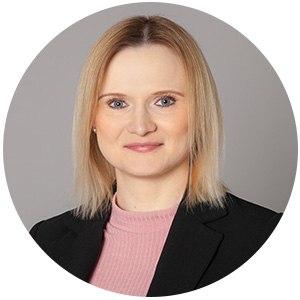
Jennifer Zerth
Organisation und Teilnehmermanagement
+49 231 75896-79
jzerth@akademie-fresenius.de

Jennifer Zerth
Organisation und Teilnehmermanagement
+49 231 75896-79
jzerth@akademie-fresenius.de
Präsentieren Sie Ihr Unternehmen auf unserer Veranstaltung.
Persönlich und zielgruppengenau stellen Sie Ihre Produkte und Dienstleistungen vor. Gerne informieren wir Sie unverbindlich über die verschiedenen Möglichkeiten – von der Auslage von Produktinformationen bis hin zum Ausstellungsstand.
Gerne beraten wir Sie persönlich:
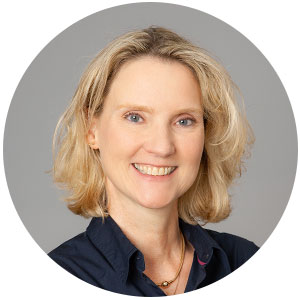
Monika Stratmann
Telefon: +49 231 75896-48
info@akademie-fresenius.de
Wir bieten Journalist:innen und Redakteur:innen eine Plattform, um in Kontakt mit Expert:innen zu treten.
Wenn Sie als Redakteur:in der Fachpresse Interesse an einem Pressepass oder einer Medienpartnerschaft haben, kontaktieren Sie uns bitte frühzeitig. Wir beraten Sie gerne.
Sprechen Sie uns an:
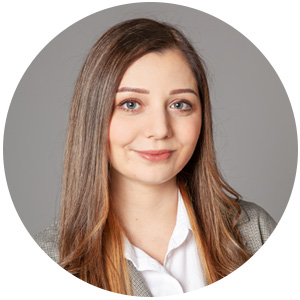
Katharina Geraridis
Telefon: +49 231 75896-67
presse@akademie-fresenius.de
© Die Akademie Fresenius GmbH